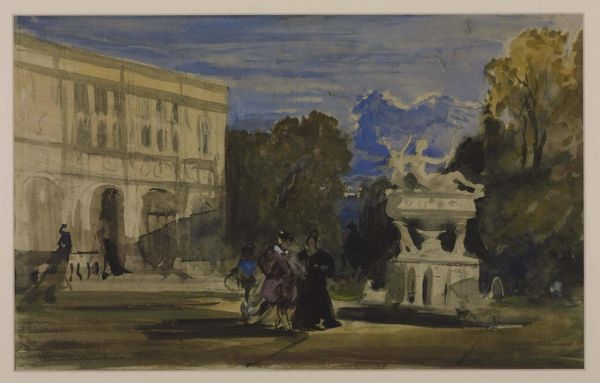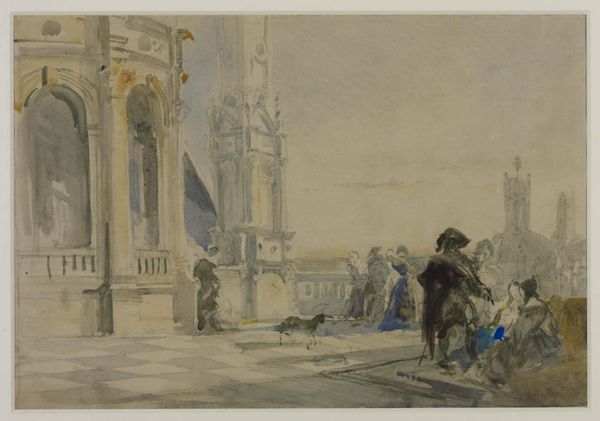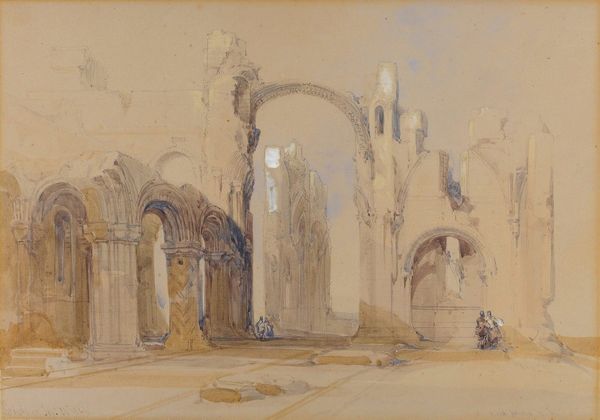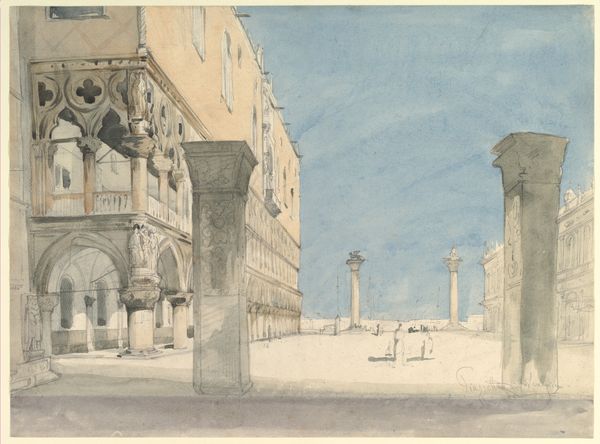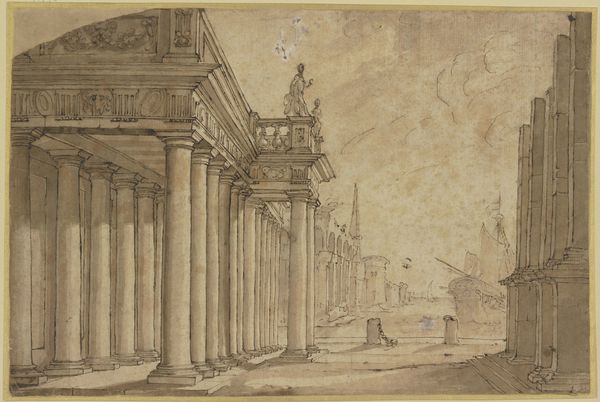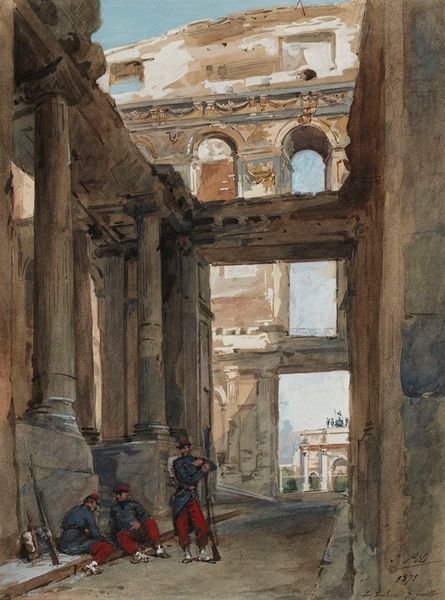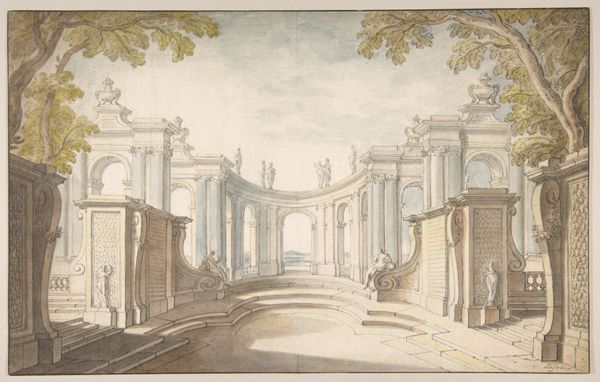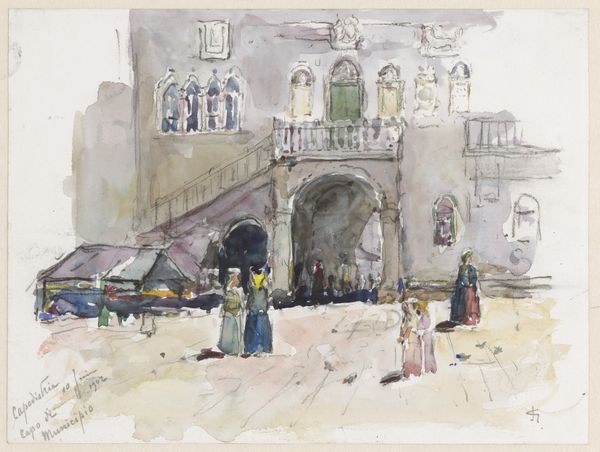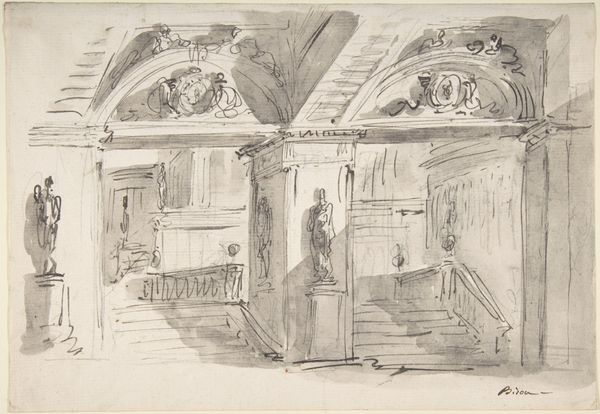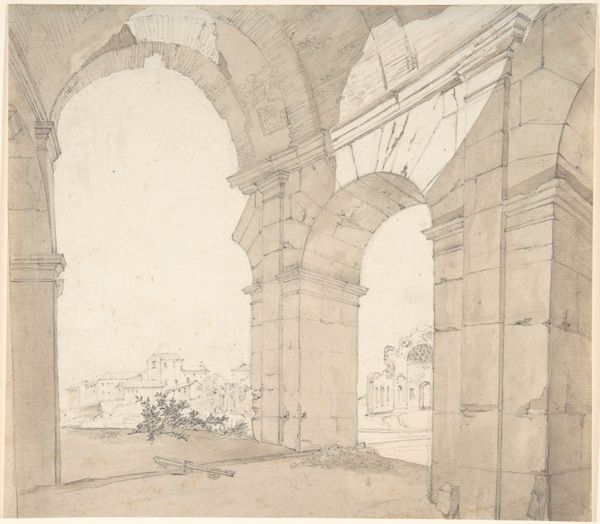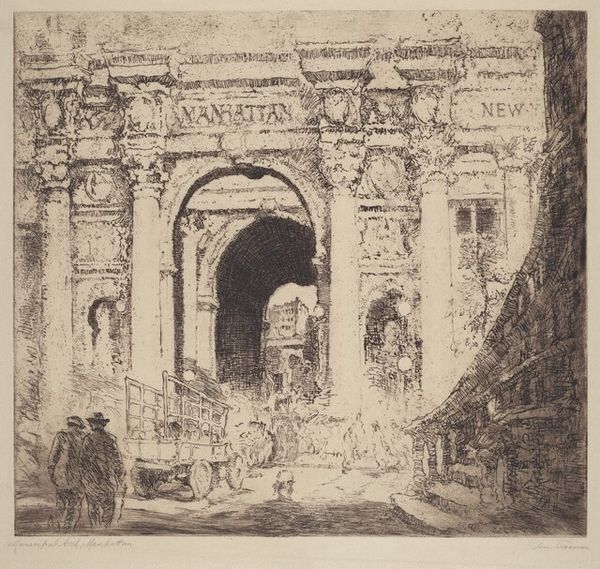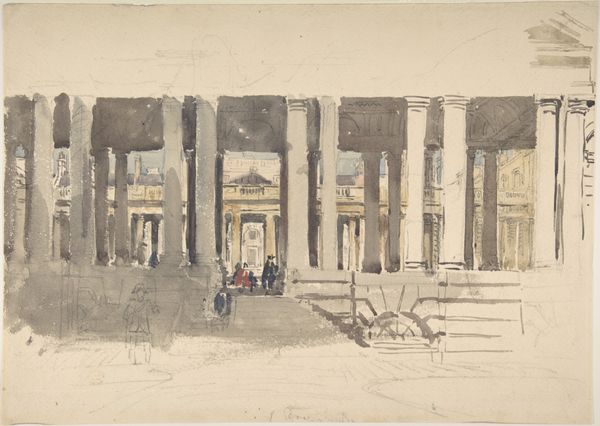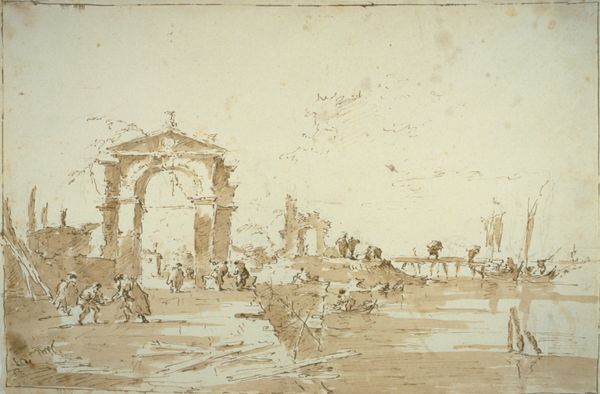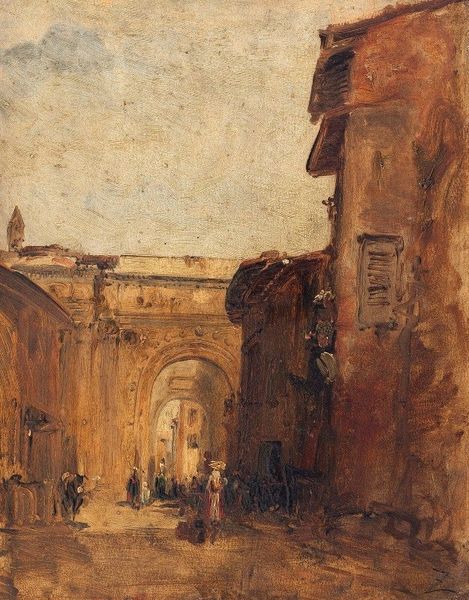
Dimensions: support: 297 x 432 mm
Copyright: CC-BY-NC-ND 4.0 DEED, Photo: Tate
Editor: This is William James Müller's watercolor, "Fountainebleau: The Court of Honour." It’s quite striking, almost theatrical in its use of perspective. What do you see in this piece? Curator: Müller's work operates within the burgeoning 19th-century fascination with historical sites. Consider how the romanticized view of Fontainebleau, a locus of French royal power, interacts with the everyday lives of those within its shadow. Editor: So, you're saying it's about more than just pretty architecture? Curator: Precisely. It's about the public consumption of history and power. Müller invites us to consider the intersection of grand historical narratives and the lives of ordinary people occupying those spaces. A visual commentary, in essence. Editor: I never thought about it that way. Thanks, it really adds a new layer to how I see the image!
Comments
tate 10 months ago
⋮
http://www.tate.org.uk/art/artworks/muller-fountainebleau-the-court-of-honour-n02361
Join the conversation
Join millions of artists and users on Artera today and experience the ultimate creative platform.
tate 10 months ago
⋮
In the summer of 1840 Müller travelled in France, sketching the great sixteenth-century chateaux in preparation for a volume of lithographs, Müller’s Sketches of the Age of Francis 1st, published the following year. This shows the courtyard at the heart of Francis I’s favourite palace, Fontainbleau. Such historical subjects had traditionally been the topic of dry written histories and dull antiquarian illustration. But in the early nineteenth century a market for popular history emerged. Vivid and romantic illustrations like this brought the ‘Olden Times’ to life. Gallery label, August 2004
